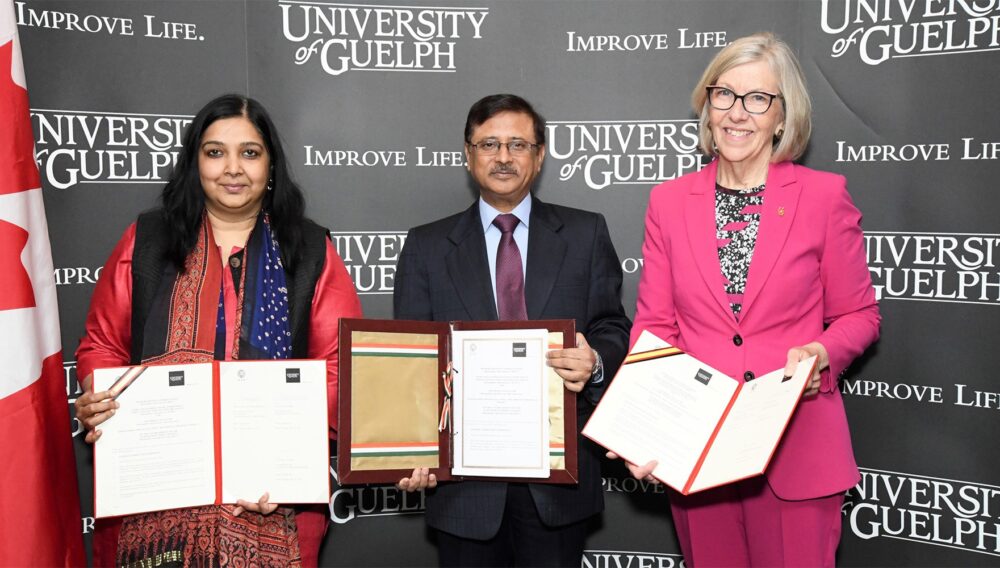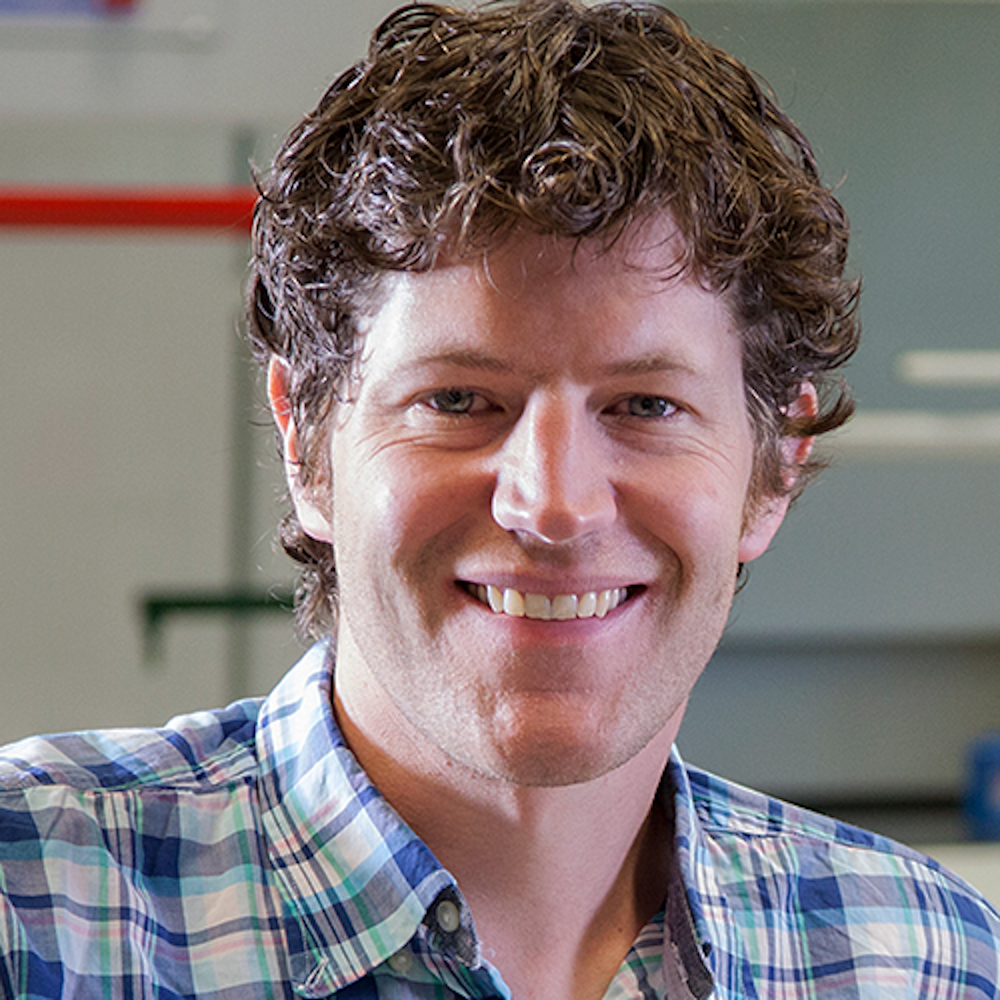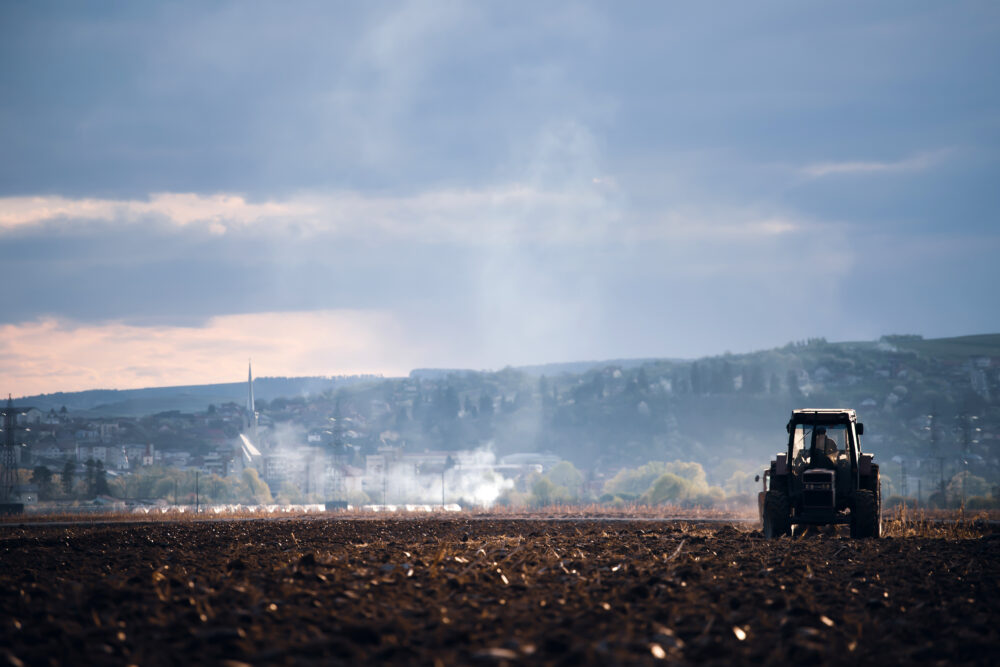A strategic plan is more than just a set of goals, it is a vision for the future. It enables us to focus our combined efforts towards a common objective.
As we come together to achieve the vision laid out in Our Time: University of Guelph Strategic Plan 2022-27, we want to celebrate how our community is already working to transform our University for the better.
This is the first of a series of articles that will highlight a few examples of the many initiatives, projects and practices happening across campus that move the needle on each of the Our Time five strategic priorities and one enabler.
The first priority, deepening our impact on the world, calls U of G to expand the global, national and local impact of our work through research and teaching excellence, the strength and breadth of our connections and the successes of our graduates.
Here are a few ways U of G is bringing this pillar of Our Time to life.
Unique activist-in-residence program invests in global activism
U of G is one of only a handful of universities in Canada to offer an activist-in-residence program that merges activism and academics. This year’s activists-in-residence Dr. Marsha Hinds Myrie and Nneka MacGregor both have had incredible impact working with survivors of gender-based violence and contributing to research.
The U of G activist-in-residence program was created by the Grounded and Engaged Theory Lab, an initiative of the College of Social and Applied Human Sciences and the College of Arts. The program brings these activists to campus to engage with students and researchers while also supporting their continued work in Canada and abroad.
New visiting chair in Indian Studies strengthens relationships with India

In May 2023, U of G announced the creation of a new visiting chair in Indian studies at the University that will bring eminent Indian scholars to campus. Under the agreement, in partnership with the Indian Council of Cultural Relations (ICCR), U of G will host a visiting professor from India for one semester each year who will teach, conduct research and hold a public lecture. The inaugural chair will join U of G in fall 2024.
This agreement deepens U of G’s existing connections with India and the Indian diaspora, complimenting initiatives such as the Canada India Research Centre for Learning and Engagement (CIRCLE). As these connections grow, U of G will strengthen ties to leading researchers and institutions in India and increase opportunities for knowledge exchange and cross-cultural understanding for faculty, students and staff.
CESI partners with Community Living agencies to support transition-aged youth
A key principle of community-engaged scholarship is that it addresses community-identified research priorities and building deep, reciprocal relationships. Through a partnership between the Community Engaged Scholarship Institute (CESI) and four Community Living agencies, U of G is supporting community-driven research aimed at supporting youth with developmental disabilities as they transition from Child to Adult Developmental Services.
In late 2020, CESI took on the second phase of the project through the Research Shop which looked at understanding the context that transition aged youth were living in after transitioning to adult services and how existing services were meeting their needs. By building a strong working relationship and collaborating deeply through the project, CESI and Community Living were able to adapt to challenges in a way that respected participants and fulfilled the ultimate goals of the project.
Internationally acclaimed waterborne pathogens researcher joins U of G

In November 2023, U of G was proud to announce that water quality researcher and engineer Dr. David McCarthy had been named Canada Excellence Research Chair (CERC) in Waterborne Pathogens: Surveillance, Prediction and Mitigation at U of G, supported by $8 million in federal funding over eight years.
McCarthy joins the School of Environmental Sciences within the Ontario Agricultural College (OAC) and will lead a multidisciplinary team of researchers from College of Engineering and Physical Sciences, OAC, and the Ontario Veterinary College (OVC). Through their work, the team will contribute to reducing the risk of waterborne pathogens around the globe and ensure safe, accessible water.
PhD student Brenda Zai models impact of climate change on pathogens

To improve food security, OVC PhD student and alumnus of food science at OAC Brenda Zai models how climate change may facilitate the spread of food-borne pathogens.
Working with the University’s interdisciplinary One Health Institute, Zai combines data on food-borne illness with information from Environment and Climate Change Canada to create a tool that policy makers can use to gauge climate change impacts on food safety and devise mitigation strategies. “You can’t have food security without safe food,” said Zai.
These are just a few examples of the many ways our campus community is realizing the vision laid out in Our Time.
Have a suggestion of research, an initiative, an individual or a program we should feature? Email campusnews@uoguelph.ca.
